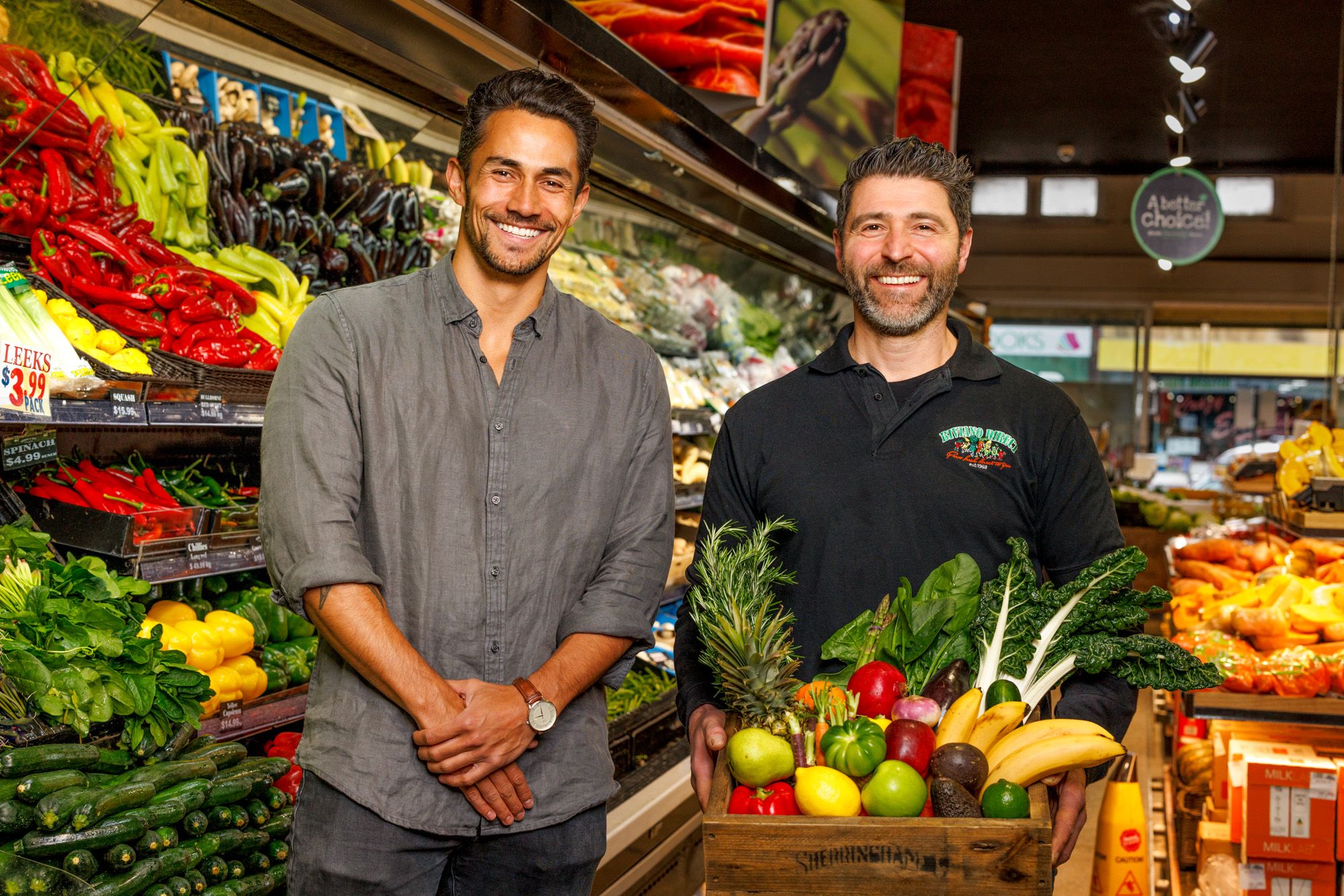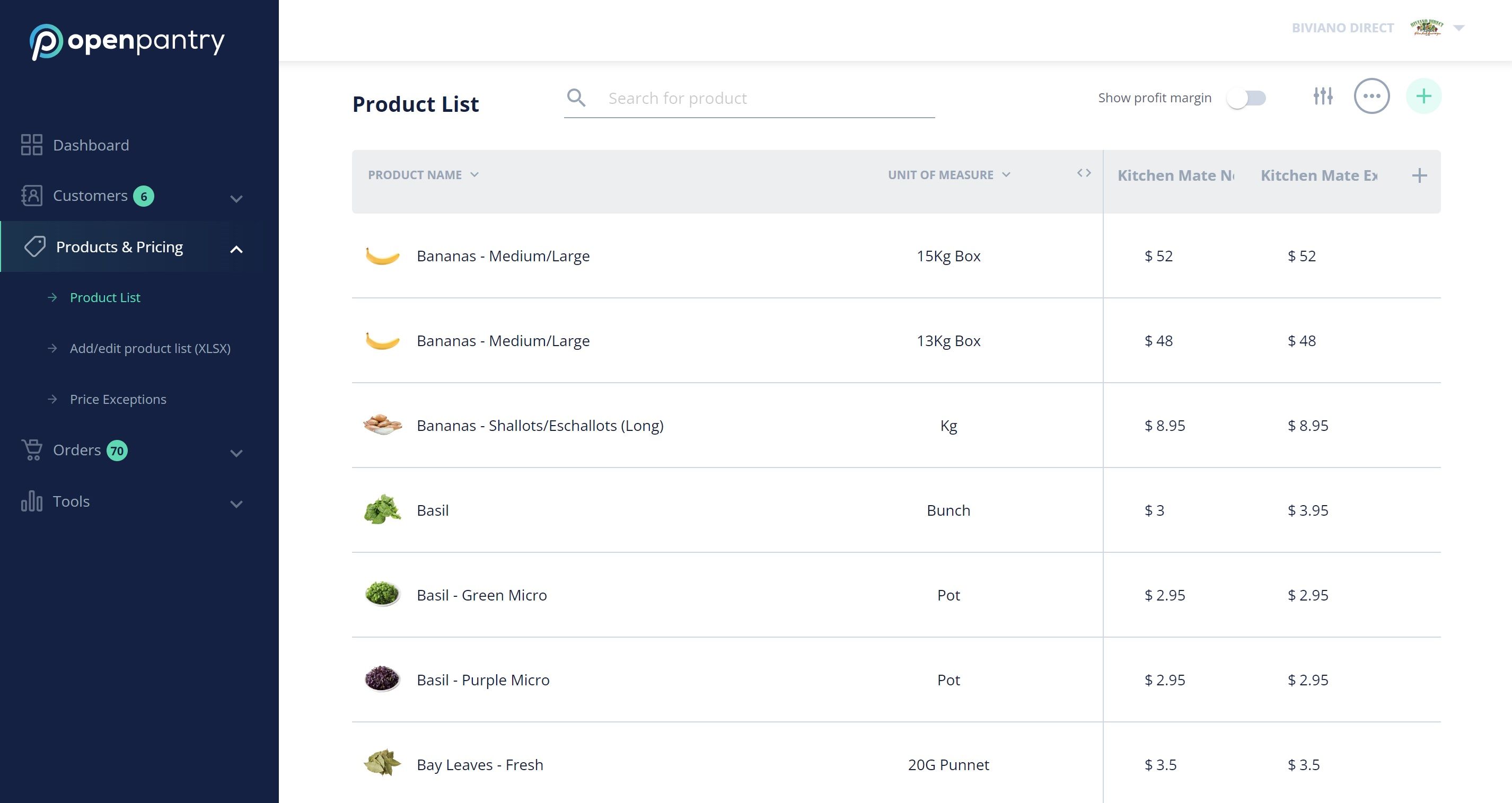How a Restaurant Chooses a Wholesale Supplier

In the vibrant culinary scene of Australia, a restaurant's success relies on more than just the chef's skills and the venue's atmosphere. The selection of a wholesale supplier plays a crucial role behind the scenes, ensuring that the dishes served are of the utmost quality.
With the advent of online ordering systems and the growing need for efficient B2B wholesale marketplaces, finding the right supplier has become a blend of science and art. This article explores the various factors influencing a restaurant's decision, from the appeal of exceptional service to the assurance of consistent excellence.
The food and beverage industry is dynamic, with trends shifting rapidly and new challenges emerging almost daily. In such an environment, the importance of a reliable wholesale supplier must be considered. Whether sourcing the freshest ingredients or ensuring timely deliveries, the right supplier can make all the difference. But how does a restaurant make this crucial choice?
The Importance of Trust and Reputation

Trust and reputation play pivotal roles in selecting wholesale suppliers in the competitive landscape of the restaurant industry. The relationship between restaurants and their suppliers is not merely transactional; it's built on trust, mutual respect, and shared goals. A supplier's reputation in the market can significantly influence a restaurant's decision to partner with them.
Melbourne Chef Ishy Patel told Open Pantry, "Communication and honesty are the biggest qualities I value in a supplier. Knowing about out-of-stock items or price changes as soon as possible is crucial."
A recent study, "Supplier selection and partnerships: Effects upon restaurant operational and strategic benefits and performance" delves deep into the strategic criteria for selecting suppliers for casual dining, full-service independent restaurants.
The research underscores the importance of product quality, financial/technical capabilities, cost/price considerations, and service quality in supplier selection. Notably, the study highlights that well-established partnerships, built on trust, can lead to better product offerings and more valuable information exchange between the parties.
Such partnerships, rooted in mutual trust, foster information sharing, cost reduction, inventory tracking, and quality improvement cooperation.
As another chef, Liam Slacker, put it to Open Pantry, "I like the ones where you can just message the reps. That's me personally. I find you get a better care factor."
Selecting the appropriate suppliers is a vital aspect of ensuring the success of a restaurant. Various factors such as cost, quality, and timely delivery can significantly affect the overall operations and strategy. It is essential to align the supplier selection process with the restaurant's goals. Trust and reputation in Australia's restaurant industry hold great significance as supplier relationships are constantly evolving.
Quality Over Price

The adage "you are what you eat" holds profound significance in the culinary world. For restaurants, this translates to "you are what you serve." The quality of ingredients directly impacts the final dish's taste, texture, and presentation. As such, restaurants increasingly prioritise the quality of products they source over mere cost considerations.
Melbourne-based chef Andrew Braham said that whilst price is always a consideration, where there is a high-quality option available over a simply cheaper alternative, he will always opt for quality.
"Primarily for me, it's always been quality. Quality and consistency,” he told Open Pantry.
Another chef, Parveen Kumar, said that he would always opt for high-quality, well-known brands to ensure the quality of products on his menu.
"We always basically use the big-name brand. If that brand for that product isn’t available, we try to find a similar brand. If not, we always go for the popular brand, which is high in price, but always know we will get the good quality out of it," he said in an interview with Open Pantry.
Chef Kumar said that when he is in a position where he needs to change suppliers, he always asks for samples - which he is happy to pay for - demonstrating that suppliers who are ready to provide samples could be with a competitive advantage.
“Whenever I consider a new supplier, I request samples of their products. Even if there's a cost, it's essential to test them to ensure they meet our customers' expectations and match the quality we're accustomed to,” he said.
Quality shouldn't be overlooked in Australia's food industry. Even casual dining establishments understand its value. Fresh, locally sourced, high-quality ingredients attract discerning diners willing to pay more. Prioritising quality prevents wastage and improves consistency, leading to positive reviews and increased patronage.
The Role of Familiarity and Past Experiences
Humans are creatures of habit, and this trait extends to the business decisions made by restaurant owners and chefs. Familiarity and past experiences play a significant role in shaping the choices they make, especially when it comes to selecting wholesale suppliers.
Past experiences serve as a guiding light for many in the restaurant industry. If a supplier has consistently delivered high-quality products, maintained timely deliveries, and offered excellent customer service, restaurants are more likely to continue their association with them. Conversely, a single negative experience, such as receiving substandard products or facing delivery delays during peak business hours, can leave a lasting impression and influence future decisions.
Having a sense of familiarity is essential when sourcing products for restaurants. Working with suppliers that have been used before reduces uncertainty and potential risks. Chefs and restaurant owners feel more comfortable ordering from previous suppliers as they clearly understand the quality and reliability of their products.
However, while past experiences and familiarity play a significant role, they do not solely guide decision-making. The restaurant industry constantly changes, and establishments always look for new and innovative products to enhance their offerings. While they may rely on familiar suppliers for staple products, they are also open to exploring new partnerships that align with their evolving needs and culinary vision.
The Significance of Service and Communication
In the bustling world of the food and beverage industry, where every minute counts, the significance of impeccable service and clear communication cannot be overstated. While the quality of products is paramount, how a wholesale supplier interacts with restaurants can make or break a business relationship.
"Integrity, obviously, with your suppliers, is crucial,” Barham said.
“You need to know that you're getting good quality products because of the stresses of working in a kitchen.
“Maintaining strong relationships with suppliers is incredibly important, but that also relies on the quality you receive.”
Good service means understanding each restaurant's unique needs, being proactive, and providing solutions to improve operations. Anticipating seasonal demands and advising on stock levels is valuable. Effective communication builds trust and prevents potential issues.
In today's digital age, online ordering systems and B2B order management software have revolutionised how suppliers and restaurants communicate. These platforms streamline the ordering process and offer real-time updates, ensuring both parties are always on the same page. Such technological advancements underscore the importance of staying connected and fostering a collaborative relationship.
The Impact of Packaging and Presentation

Packaging can affect how customers perceive a product. High-quality packaging assures the product's safety and freshness, elevating its perceived value. Eco-friendly packaging is now a necessity. Restaurants prefer suppliers who use sustainable packaging to show their environmental responsibility. Branding elements in packaging help reinforce a brand's identity and values.
Flexibility and Adaptability
Flexibility is key in the food and beverage industry. Restaurants need suppliers who can adapt to changing circumstances like customer preferences and seasonal ingredient availability. A supplier's willingness to source specific ingredients, adjust delivery schedules, and introduce new products in response to emerging food trends are valuable assets.
For Slacker, being able to reach suppliers was also of notable value.
"I prefer suppliers where I can directly message the representatives,” he said.
“With smaller businesses, especially when dealing directly with the owners, there's a heightened level of care. Issues also tend to be resolved much faster."
On the other hand, Patel didn’t mind working with big or small suppliers but said communication was crucial to any supplier relationship.
"Communication and honesty are the biggest qualities I value in a supplier,” he said.
“Knowing about out-of-stock items or price changes as soon as possible is crucial. If we know about a shortage, or if something isn’t going to be available for the next delivery, we can have an honest conversation about where else we can source it or how we can replace it.”
With online marketplaces and advanced software, platforms can offer even greater flexibility with real-time inventory tracking, predictive ordering, and seamless communication.
The Rise of Digital Platforms and Technology

The digital revolution has untouched every industry, and the food and beverage sector is no exception. The emergence of online ordering systems for restaurants, b2b wholesale marketplaces, and mobile ordering platforms has transformed how restaurants and suppliers interact.
Online platforms offer restaurants and suppliers a hassle-free way to manage orders, track inventory, and communicate with customers. Advanced features such as menu costing can help make informed decisions and optimise operations. Integrating with other tools creates a cohesive ecosystem that boosts efficiency for everyone involved.
Unlocking the Power of Strategic Partnerships
The intricate dance between restaurants and their wholesale suppliers involves many and varied steps. Each aspect is crucial in building a harmonious and productive relationship from ensuring product quality to leveraging the latest digital tools. As suppliers strive to meet the nuanced needs of restaurants, they pave the way for strategic partnerships that benefit both parties. Suppliers can position themselves as indispensable allies in a restaurant's journey to success by focusing on value, adaptability, and innovation.
To truly harness the potential of these partnerships, embracing technology is critical. Platforms like Open Pantry are at the forefront of this digital transformation, bridging the gap between suppliers and restaurants.
With Open Pantry, restaurants can see stock levels and be automatically alerted with back orders, enhancing communication between restaurants and suppliers.
With its suite of features designed to enhance efficiency, transparency, and collaboration, Open Pantry is the ideal partner for those looking to elevate their wholesale operations.